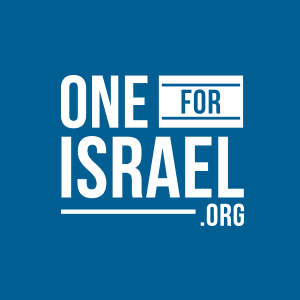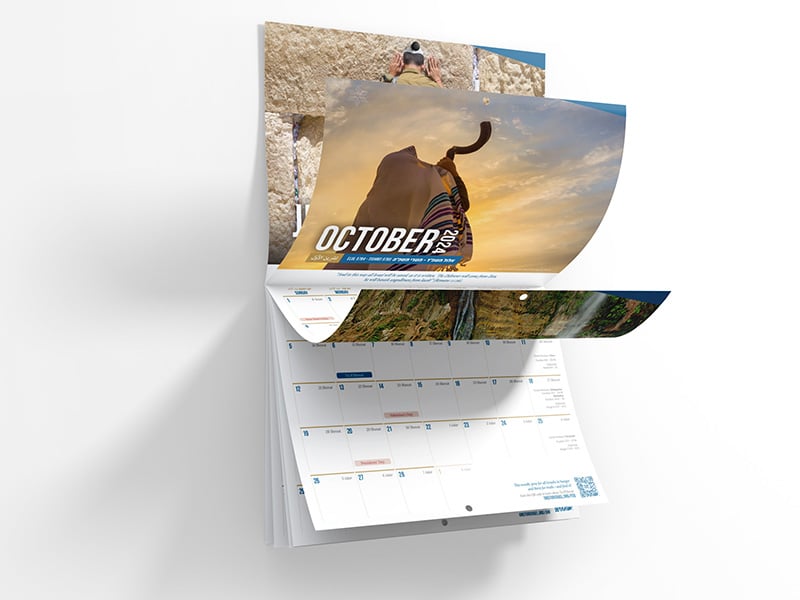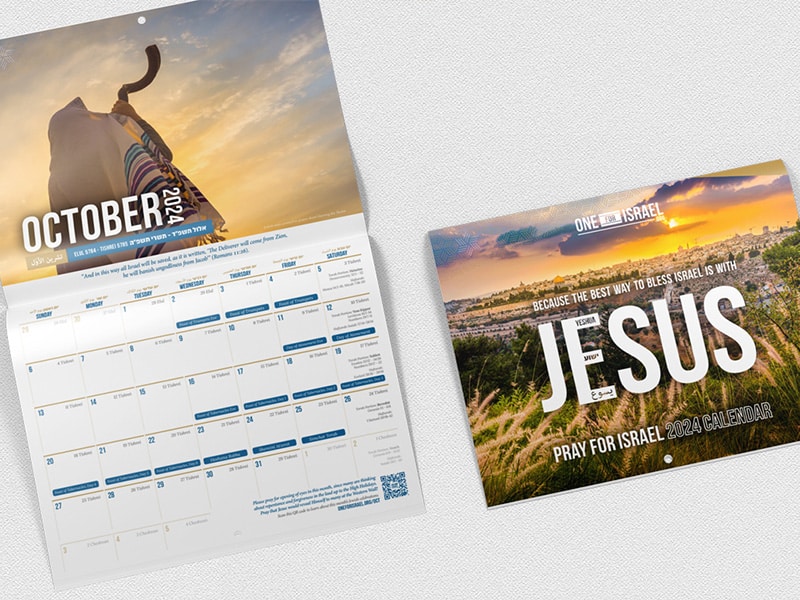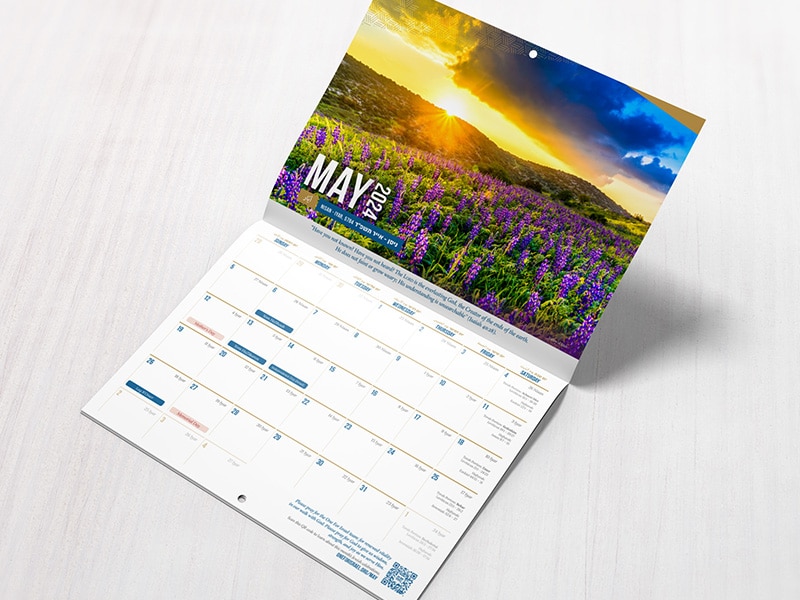One of the most famous visitors to the tabernacle that stood at Shiloh was Hannah. Hannah, like Abraham, might have just thought all she wanted was a son. But God had bigger plans. God took Hannah’s heart cry and opened up a whole new era. And it’s not for nothing that this story is read at the Feast of Trumpets, as Israel transitions from one season to the next. This is a threshold story, laden with gems for all who would like to come and seek God.
Shiloh as a gateway
The ancient site of Shiloh is about an hour’s drive north of Jerusalem, and you can see where the tabernacle of God once stood. It was there for almost 400 years—a gateway between man and God—during the time of the judges. People could come to worship God from all over Israel, to seek Him or bring their prayers and requests. The priests were there to mediate, acting as gatekeepers to God’s house. Priests were supposed to intercede for the people to before God, and represent God to the people by serving them and teaching them His ways.
God instituted the tabernacle as a mechanism by which He could meet with His people—as a meeting place between heaven and earth.
In fact, the tabernacle was also known as the “Tent of Meeting”.
But sometimes instead of helping and connecting people with God, the priests got in the way. Certainly during the era of the judges, Israel’s civil and spiritual leadership had became more and more frayed, with Israel spending the majority of those four centuries in bondage and under God’s judgement. Eli the high priest was a godly man but he had two useless sons, and God decided it was time for a new chapter. And here’s where Hannah comes in.
Hannah was barren. A hard reality at the best of times, but even more so in her day. She had a kind husband named Elkanah, but he also had another wife: Peninnah. Peninnah had children while Hannah didn’t, and the pain for Hannah was excruciating. Worse than that, we are told that Peninnah would rub salt in the wound and torment Hannah about her predicament:
“So it went on year by year. As often as she went up to the house of the Lord, she used to provoke her.” (1 Samuel 1:7a)
Interestingly, the provocation came “as often as she went up to the house of the Lord”. The rivalry would flare up, the attacks would start just when they went to worship God in Shiloh each year.
The trouble would kick off just as Hannah was in designated meeting place of the God who could change things: the Lord of Hosts. It was the Lord who was credited with closing her womb, and so the Lord was the only one who could open it. Despite Elkanah’s love and encouragement, no compensation would do. She had to have a child. Hannah was distraught, and took herself to the Place of Meeting: The gateway of God.
Crossing the threshold
Now Eli the priest was sitting on the seat beside the doorpost [mezuzah] of the temple of the Lord.
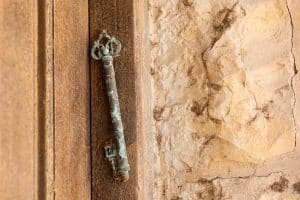 Eli was beside the doorpost, we are told. He was the gatekeeper. In Hebrew it says he was sitting by the mezuzah. The word “mezuzah” (מזוזה) is the Hebrew for doorframe or doorpost, and it’s on the doorframes that the Israelites were commanded to attach their daily reminder to keep God’s commandments. Every Hebrew house had the Shema attached to it on the threshold, or mezuzah:
Eli was beside the doorpost, we are told. He was the gatekeeper. In Hebrew it says he was sitting by the mezuzah. The word “mezuzah” (מזוזה) is the Hebrew for doorframe or doorpost, and it’s on the doorframes that the Israelites were commanded to attach their daily reminder to keep God’s commandments. Every Hebrew house had the Shema attached to it on the threshold, or mezuzah:
““Hear, O Israel: The Lord our God, the Lord is one. You shall love the Lord your God with all your heart and with all your soul and with all your might.”
And these words that I command you today shall be on your heart. You shall teach them diligently to your children, and shall talk of them when you sit in your house, and when you walk by the way, and when you lie down, and when you rise. You shall bind them as a sign on your hand, and they shall be as frontlets between your eyes. You shall write them on the doorposts [mezzuzahs] of your house and on your gates.” (Deuteronomy 6:4-9)
Mezuzah is from the root word to move, because it is through doorframes that we move from one area to another, one realm to another… and in the case of the gateway of God, we see the threshold between the realm of man and the realm of God.
This is where Hannah had come to, hoping for a breakthrough.
She was deeply distressed and prayed to the Lord and wept bitterly. And she vowed a vow and said, “O Lord of hosts, if you will indeed look on the affliction of your servant and remember me and not forget your servant, but will give to your servant a son, then I will give him to the Lord all the days of his life, and no razor shall touch his head.” (1 Samuel 1:9-11)
She was desperate. Hannah had gone to Shiloh, right to God’s front door, to plead with Him and make a deal. She needed an open door, open heavens, and the opportunity of a miracle…
And like many other biblical characters on the edge of a trajectory-altering miracle, there’s a doorway involved. Barren Sarai standing at the door of the tent when the angels came with good news. Elisha’s widow who is told to close the door just before her poverty was about to become a thing of the past. And of course, there’s the blood on the doorframes in the Exodus story of transition from slavery to freedom. Portals seem to be important, indicating the crossing over from one chapter to the next. In Shiloh the doorpost, the mezuzah, of the house of God represented the place where heaven met earth, and also the transitioning of one season, one reality to the next.
Stepping into a new season
So it is not surprising then that this story is read on the first of Tishri, now known as Rosh Hashanah, the “head of the year”. It’s the time when the Jewish calendar flips from one year to the next. It’s a threshold season, and often thought to be a time of open heavens.
If you read the Rosh Hashanah portion (1 Samuel 1:1-2:10) you will see that the Lord of Hosts conducted a creative miracle and Hannah’s prayer was answered. Eli wasn’t the most welcoming doorman sitting at his post at Shiloh, but he eventually affirmed Hannah’s prayer and joined with her, blessing her request. Hannah’s yearning for a son was answered, and melded with God’s desire to bring into the world a powerful prophet who would bring in the next era for Israel, paving the way ultimately for King David. God had closed her womb until Hannah’s passionate prayer for a child calibrated with His purposes. Hannah dedicated her son to God, and he became one of the most righteous and important leaders in Israel. The Lord had closed her womb, and so He was able to reverse it. Here is Hannah’s song of praise in response to God’s miracle:
 The Lord kills and brings to life;
The Lord kills and brings to life;
he brings down to Sheol and raises up.
The Lord makes poor and makes rich;
he brings low and he exalts.
He raises up the poor from the dust;
he lifts the needy from the ash heap
to make them sit with princes
and inherit a seat of honor. (1 Samuel 2:6-8)
This song is echoed in Psalm 113, reverberating throughout the history of Israel:
Who is like the Lord our God,
the One who sits enthroned on high,
who stoops down to look
on the heavens and the earth?
He raises the poor from the dust
and lifts the needy from the ash heap;
he seats them with princes,
with the princes of his people.
He settles the childless woman in her home
as a happy mother of children.
Praise the Lord. (Psalm 113:5-9)
Hannah got her miracle and her heart was full. But where do we go today to get our breakthroughs? The tabernacle at Shiloh is long gone. The Philistines trashed it and even though the ark was recovered, only God knows where that is now.
How do we find the gateway to God on earth today?
Until Shiloh comes…
 The pattern for the tabernacle given by God to Moses had only one door. There was only one way to approach God. In John 10, Jesus made the declaration that He, Himself, was the door. He is our gateway.
The pattern for the tabernacle given by God to Moses had only one door. There was only one way to approach God. In John 10, Jesus made the declaration that He, Himself, was the door. He is our gateway.
“I am the gate; whoever enters through me will be saved.” (John 10:9)
Jesus Himself is where heaven meets earth. He is the portal. He is our intermediary, our great High Priest. He is the Way, the Truth and the Life, and no one gets to the Father except by Him. But those who have received Him have rights and privileges—we can come in the name of Jesus and ask anything in His name, and the Father will hear us.
Jesus is the promised Messiah, and one of His names is Shiloh, in a prophecy from Genesis 49:10 –
“The scepter shall not depart from Judah, nor a lawgiver from between his feet, until Shiloh comes; And to Him shall be the obedience of the people.”
As Jacob was pronouncing prophetic blessings on all his twelve sons, his blessing for Judah included a Messianic promise: A ruler would come from the line of Judah. The scepter would be in His hands, and He will rule over the people. He is referred to as “Shiloh”. The Hebrew term is not easy to understand, but it links well with the gateway to God in the land of Samaria. In Shiloh people can meet God.
In His first coming, Jesus made the way open for us to go to the Father by paying for our sin. In His second, the fulness of Jacob’s prophecy will come to pass. He will rule and reign over all the peoples of the earth. Ezekiel’s prophecy of the third temple includes a description of the Messiah coming at the end of time, the prince coming through the Eastern Gate and standing by the gatepost of the temple. Just like Eli the high priest, by the mezuzah:
“‘This is what the Sovereign Lord says: The gate of the inner court facing east is to be shut on the six working days, but on the Sabbath day and on the day of the New Moon it is to be opened. The prince is to enter from the outside through the portico of the gateway and stand by the gatepost [mezuzah]. The priests are to sacrifice his burnt offering and his fellowship offerings. He is to bow down in worship at the threshold of the gateway and then go out, but the gate will not be shut until evening. On the Sabbaths and New Moons the people of the land are to worship in the presence of the Lord at the entrance of that gateway. (Ezekiel 46:1-3)
In Jesus heaven and earth meet. In Him we have access to God. In Jesus we can come to ask for our breakthrough. He is the gate, He is the One who can bring us into breakthrough and lead us into the next chapter. Come to Him with your prayers, with the longings of your heart, and make them known. And who knows which of your deeply held desires might have been put there for God’s purposes?
